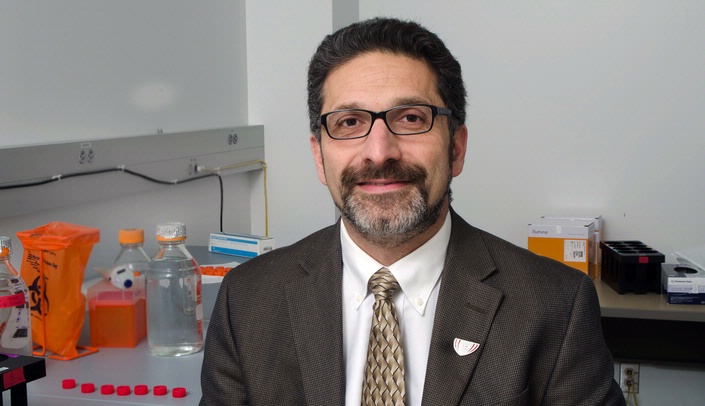ARLINGTON, Va. – Hospital-acquired pneumonia (HAP) and ventilator-associated pneumonia (VAP) – which account for 20 to 25 percent of hospital-acquired infections – should be treated with shorter courses of antibiotics than they typically are, according to new guidelines released by the Infectious Diseases Society of America (IDSA) and the American Thoracic Society (ATS) and published in the journal Clinical Infectious Diseases.
The Society of Critical Care Medicine (SCCM), the Society for Healthcare Epidemiology of America (SHEA) and the American College of Chest Physicians (CHEST) have endorsed these guidelines.
The recommendation of seven or fewer days of antibiotics for most of these infections reflects a change from previous guidelines to ensure safe and effective treatment while limiting the development of antibiotic resistance.
Created by a multidisciplinary panel led by infectious diseases, pulmonary and critical care specialists, the new guidelines also recommend that each hospital develop an antibiogram, a regular analysis of the strains of bacteria causing pneumonia infections locally as well as which antibiotics effectively treat them.
When possible, the antibiogram should be specific to the hospital’s intensive care unit patients, according to the guidelines. Antibiograms should be updated regularly, and the most appropriate frequency should be determined by the institution, the guidelines note.
"Once clinicians are updated regularly on what bugs are causing VAP and HAP in their hospitals as well as their sensitivities to specific antibiotics, they can choose the most effective treatment," said Andre Kalil, M.D., lead author of the guidelines, professor of medicine in the Division of Infectious Diseases and director of the Transplant Infectious Diseases Program at the University of Nebraska Medical Center. "This helps individualize care, ensuring patients will be treated with the correct antibiotic as soon as possible."
Published in 2005, the previous guidelines recommended different lengths of treatment time for antibiotic therapy based on the bacterium causing the infection.
The 2016 guidelines recommend seven days or fewer for all bacteria. Newer evidence suggests that the shorter course of treatment does not reduce the benefits of therapy, Dr. Kalil said. In addition, he said this can reduce antibiotic-related side effects, the risk of Clostridium difficile, a serious diarrheal infection, antibiotic resistance and costs. In some cases, such as when a patient doesn’t improve or worsens, longer treatment may be necessary.
Mechanical ventilators help patients breathe. They are used when a patient is having surgery with general anesthesia or for those who suffer from impaired lung function. One of every 10 patients on a ventilator gets VAP, which is fatal about 10 to 15 percent of the time.
VAP also increases: the amount of time patients remain on a ventilator – from 7.6 to 11.5 days on average – and length of hospital stay – from 11.5 to 13.1 days on average.
While HAP typically is a less severe infection than VAP, half of patients have serious complications, including respiratory failure, fluid in the lungs, septic shock and kidney failure.
The 20-person guidelines panel featured experts from around the globe including infectious disease, pulmonary and critical care specialists, surgeons, pharmacologists, microbiologists, professional librarians and methodologists.
Mark Metersky, M.D., professor of medicine and medical director of the UConn Center for Bronchiectasis Care, served as co-chair of the panel with Dr. Kalil. A second UNMC faculty member, Paul Fey, Ph.D., professor, pathology and microbiology, also served on the panel.
IDSA has published more than 50 treatment guidelines on various conditions and infections, ranging from HIV/AIDS to Clostridium difficile. As with other IDSA guidelines, the HAP and VAP guidelines will be available in a smartphone format and a pocket-sized quick-reference edition. The full guidelines are available free on the IDSA website at www.idsociety.org.
# # #
The Infectious Diseases Society of America (IDSA), based in Arlington, Va., is a professional society representing nearly 10,000 physicians and scientists who specialize in infectious diseases. For more information, visit www.idsociety.org. Follow IDSA on Facebook and Twitter.
Clinical Infectious Diseases is a leading journal in the field of infectious disease with a broad international readership. The journal publishes articles on a variety of subjects of interest to practitioners and researchers. Topics range from clinical descriptions of infections, public health, microbiology, and immunology to the prevention of infection, the evaluation of current and novel treatments, and the promotion of optimal practices for diagnosis and treatment. The journal publishes original research, editorial commentaries, review articles, and practice guidelines and is among the most highly cited journals in the field of infectious diseases. Clinical Infectious Diseases is an official publication of the Infectious Diseases Society of America (IDSA).
AT A GLANCE
- Seven days of antibiotics are effective for most hospital-acquired pneumonia (HAP) and ventilator-associated pneumonia (VAP) infections, according to the new guidelines published by the Infectious Diseases Society of America and American Thoracic Society.
- The new guidelines also recommend that each hospital develop an antibiogram to determine which strains are causing infection and ensure the right antibiotics are used for treatment.
- HAP and VAP cause 20 to 25 percent of hospital-acquired infections, and these may be fatal 10 to 15 percent of the time.
We are Nebraska Medicine and UNMC. Our mission is to lead the world in transforming lives to create a healthy future for all individuals and communities through premier educational programs, innovative research and extraordinary patient care.
